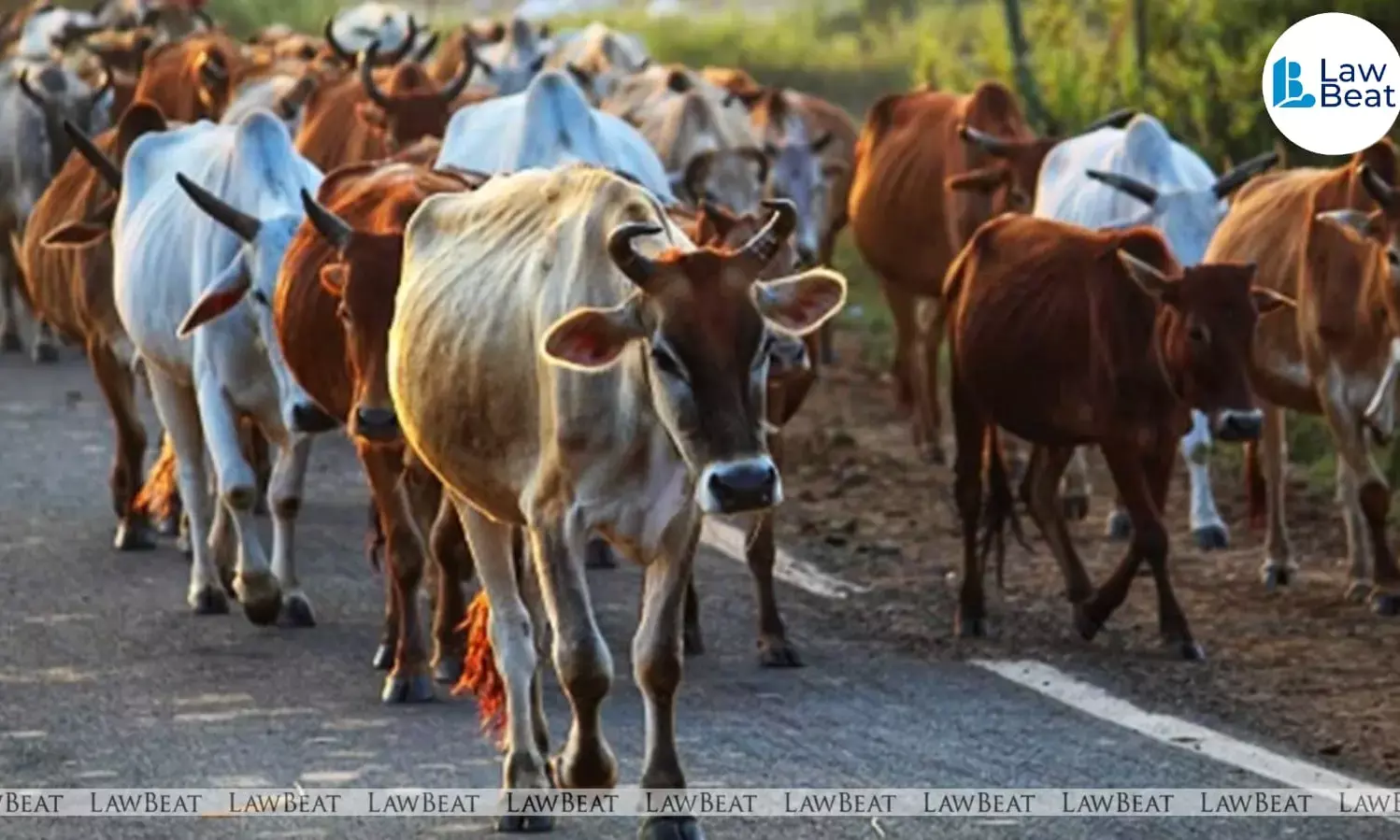‘Violence, Lynching and Vigilantism Is the Order of the Day’: Allahabad HC Raps UP Govt Over Cow Vigilantism

The Allahabad High Court asked the UP government what steps it has taken to follow the Supreme Court’s directions in the Tehseen S. Poonawalla case
The Allahabad High Court has strongly criticised the Uttar Pradesh government for failing to stop mob violence and cow vigilantism, warning that taking the law into one’s own hands in the name of “cow protection” is weakening the rule of law.
A bench of Justices Abdul Moin and Abdhesh Kumar Chaudhary, while hearing a petition filed by one Rahul Yadav, said violence and vigilantism have become “the order of the day” and asked why the State has ignored the Supreme Court’s landmark directions issued seven years ago in the Tehseen S. Poonawalla case to tackle mob lynchings.
Rahul Yadav, owner of a Bolero pickup, sought quashing of an FIR accusing him of transporting cow progeny for slaughter under the U.P. Prevention of Cow Slaughter Act, 1955.
Yadav, the owner of a Bolero pickup, contended that his driver had taken the vehicle and did not return, and that he later discovered the vehicle was seized with nine cow progeny allegedly being transported for slaughter. He maintained he had no role in the alleged offence but was being harassed by police.
The bench noted that the animals were found alive, there was no evidence of slaughter, and the alleged transport was within Uttar Pradesh, which is not an offence under Section 5A of the Cow Slaughter Act. Yet, the FIR was registered and the accused was subjected to police action.
“The court is deluged with such cases,” the judges said, adding that such misuse of law fuels vigilante behaviour and creates space for extrajudicial violence.
Referring to a recent case where vigilantes stopped a man’s car and it later went missing, the court said, “Violence, lynching and vigilantism is the order of the day".
It expressed alarm at how private groups, emboldened by misplaced zeal, continue to take the law into their own hands despite repeated judicial warnings.
Citing the Supreme Court’s directions in Tehseen S. Poonawalla v. Union of India (2018), which declared lynching and vigilantism an “affront to the rule of law and the exalted values of the Constitution,” the bench said, “When any group takes the law into its own hands, it ushers in anarchy, chaos and disorder. Vigilantism cannot, by any stretch of imagination, be given room to take shape".
Court went on to reproduce the Supreme Court’s mandatory directions, including appointment of district nodal officers, setting up of special task forces, fast-track trials for lynching cases, and disciplinary action against officials who fail to act. It asked the State to explain why none of these directions had been implemented through a formal government order.
A 2018 circular issued by the DGP in response to the Supreme Court’s ruling, the bench said, “does not satisfy the constitutional mandate".
The circular, it observed, was limited to police instructions, while the apex court’s directions required a comprehensive government policy decision under Article 162 of the Constitution.
Despite the Supreme Court’s judgment being seven years old, it is not known what steps the State has taken to comply with it, the court remarked,
The bench also referred to the Supreme Court’s February 2025 decision in National Federation of Indian Woman v. Union of India, which reaffirmed that compliance with judicial directions is binding under Article 141 of the Constitution.
Taking a firm stance, the bench directed the Principal Secretary (Home) and Director General of Police to file personal affidavits within three weeks detailing:
- Why such “casual FIRs” continue to be filed under the Cow Slaughter Act,
- What disciplinary measures are planned against erring officials and complainants, and
- What concrete steps have been taken to implement anti-vigilantism measures as directed by the Supreme Court.
“If the affidavits are not filed,” the bench cautioned, “both officials shall appear in person before this Court".
Case Title: Rahul Yadav vs. State Of U.P Thru. Secy. Home Lko. And 3 Others
Order Date: October 9, 2025
Bench: Justice Abdhesh Kumar Chaudhary and Justice Abdul Moin
